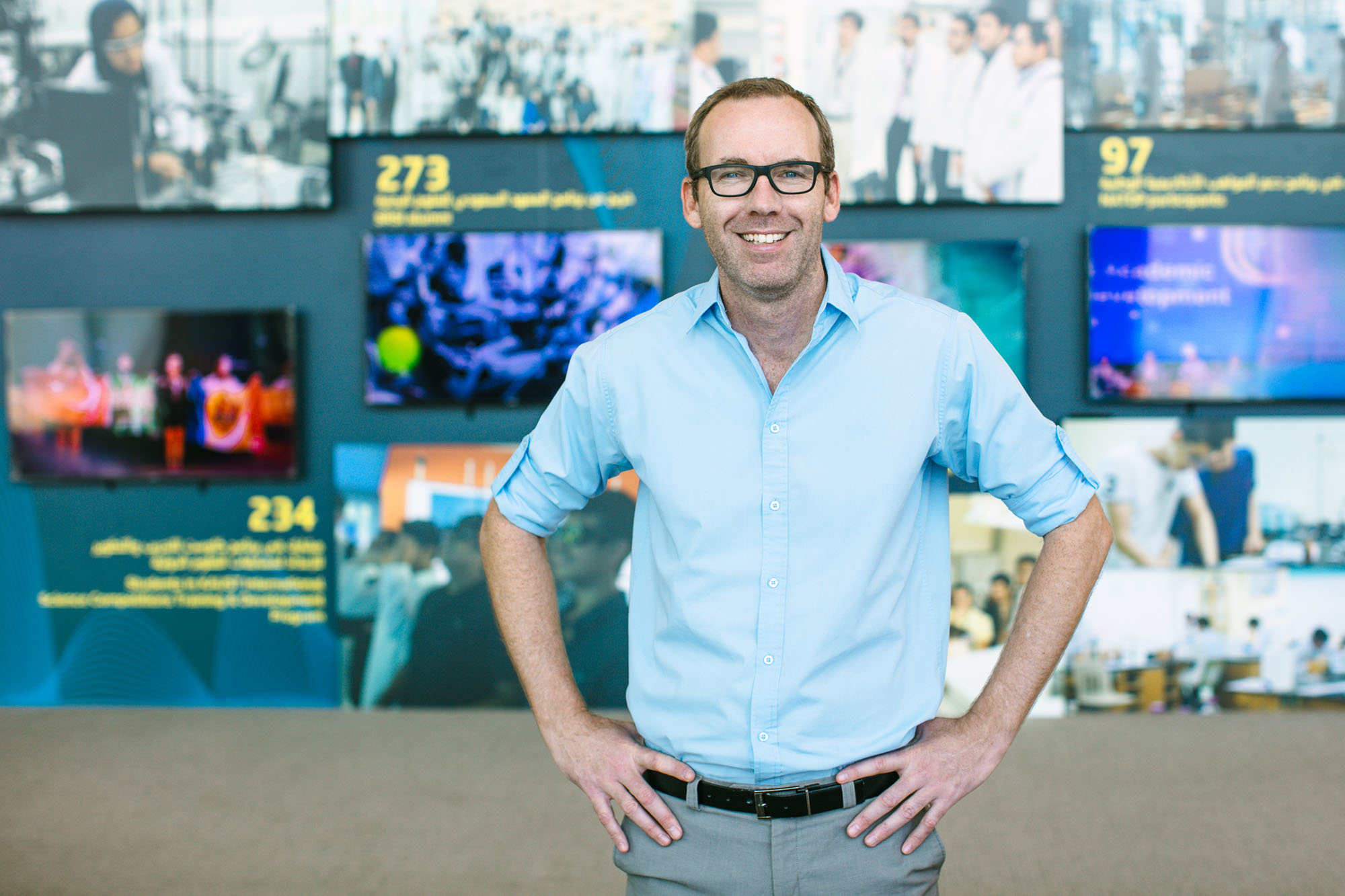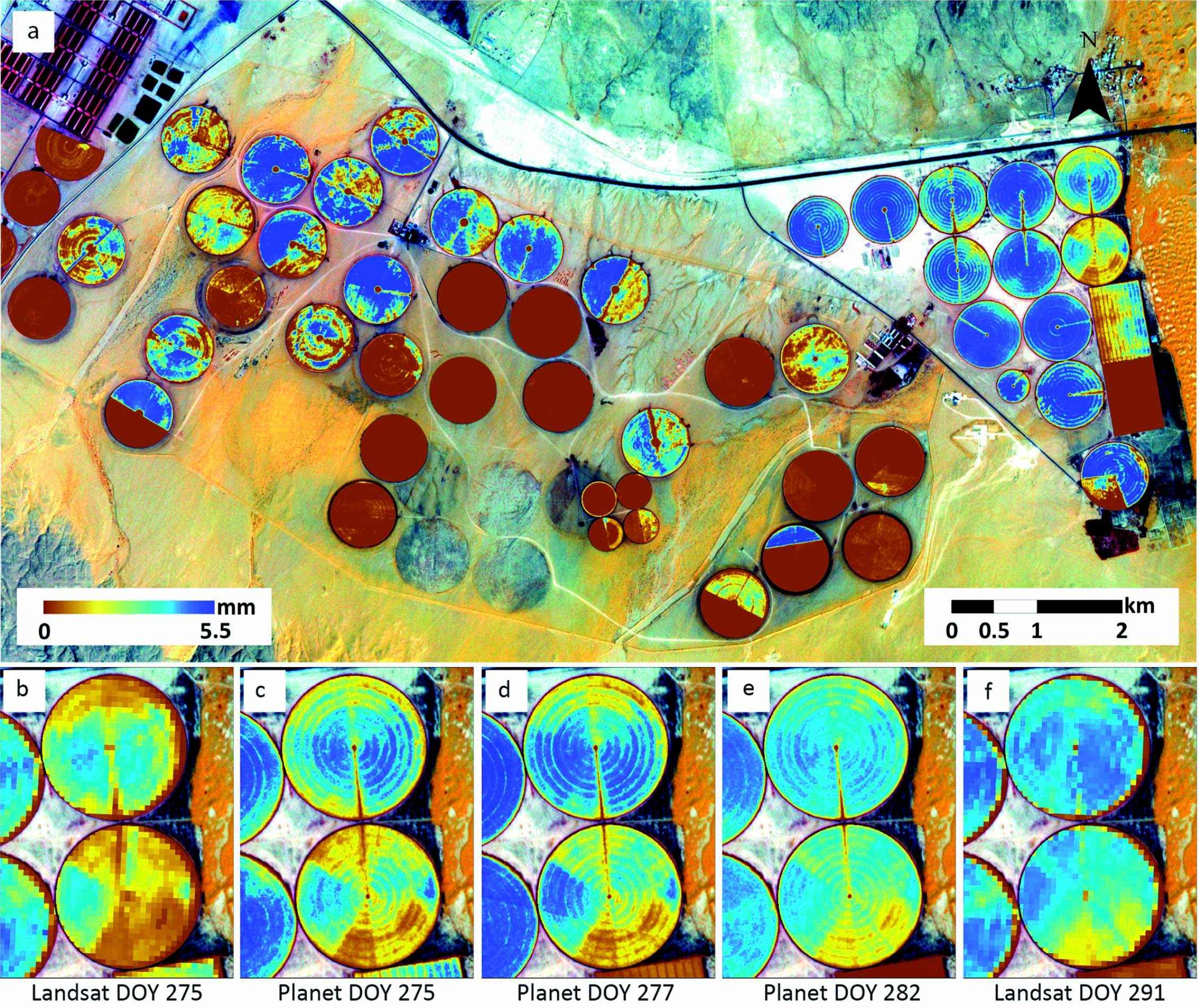Professor Matthew McCabe and team win Prince Sultan Bin Abdulaziz International Prize for Water

Portrait of Dr. Matthew McCabe, KAUST professor of remote sensing and water security and the director of the KAUST Climate and Livability Initiative. Photo: KAUST
Director of the KAUST Climate and Livability Initiative (CLI) and Professor of Remote Sensing and Water Security
Dr. Matthew McCabe, together with former team members Dr. Bruno Aragon (Planet) and Dr. Rasmus Houborg (Planet), have been awarded the prestigious
2022 Prince Sultan Bin Abdulaziz International Prize for Water (PSIPW) in the Water Management and Protection category.
PSIPW is a leading international scientific award focusing on cutting-edge innovation in water research. Judged by a panel of leading scientists from around the world, it gives recognition to scientists, researchers and inventors for pioneering work that seek solutions to some of the major global challenges related to the security and sustainability of water resources. The Water Management and Protection Prize is one of four specialized prizes awarded to scientists for their groundbreaking research.
The 10th Award winners were announced on June 6 under the Space and Water Agenda of the 65th Session of the United Nations Committee on the Peaceful Uses of Outer Space (UN COPUOS). Recipients will receive their awards in a special ceremony to be held in Vienna this December.

Remote sensing technologies such as cubesats are being used to monitor water usage and vegetative health at agricultural sites in Saudi Arabia and other locations by a team of KAUST scientists as part of the KAUST Climate and Livability Initiative. Photo: KAUST
Remote sensing technologies such as cubesats are being used to monitor water usage and vegetative health at agricultural sites in Saudi Arabia and other locations by a team of KAUST scientists as part of the KAUST Climate and Livability Initiative. Photo: KAUST
Professor McCabe and his team were awarded the prize for their innovative use of satellites for water accounting and management. Over many years, McCabe has studied how to remotely monitor and more sustainably manage water resources from the field to the global scale. Building on this work, they pioneered an approach that allowed them to harmonize hundreds of individual "CubeSat" satellite platforms to deliver Earth observation insights at unprecedented time and space scales.
The satellite data was provided by Planet, an aerospace and data analytics company whose constellation of small satellites has revolutionized how we can visualize global change, delivering a 50 trillion-pixel image of the Earth every day. Exploiting this technology, the team produced the highest resolution estimates of water usage ever retrieved from space.
"Remote sensing technologies are increasingly being leveraged to address a range of global climate and sustainability issues," McCabe said. "Ensuring the safety and security of water resources is one of the most critical of these challenges. The PSIPW award is a recognition of my entire team, who have been at the forefront of researching and delivering on the promise of Earth observation insights."
In February 2023, KAUST will launch its own satellite on board a Space X Falcon 9 rocket. Led by Professor McCabe, the CubeSat will contain an advanced hyperspectral imager combined with a GNSS sensor and cutting-edge on-board processing capabilities, allowing investigators to collect and analyze imagery for enhanced monitoring of global terrestrial and marine ecosystems.
Related links:
- As above, so below
- A leap forward in estimating crop water use
- KAUST and Spire Global to launch a novel nanosatellite

